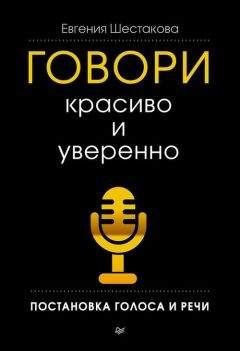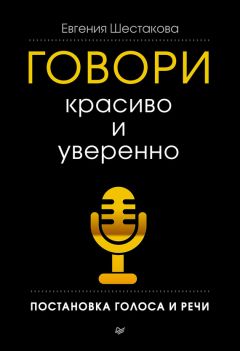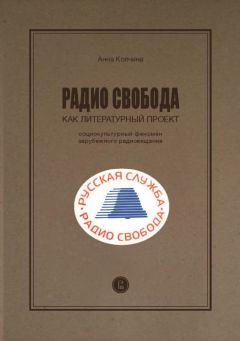Фрэнсис Фитцджеральд - Английский язык с Ф. Скоттом Фитцджеральдом. Алмаз величиной в отель «Риц» / Francis Scott Fitzgerald. The Diamond As Big As The Ritz
phenomenon [fI'nOmInqn], savage ['sxvIG], Christianity ["krIstI'xnItI]
The observation of this pointless and preposterous phenomenon had become a sort of cult among the men of Fish. To observe, that was all; there remained in them none of the vital quality of illusion which would make them wonder or speculate, else a religion might have grown up around these mysterious visitations. But the men of Fish were beyond all religion — the barest and most savage tenets of even Christianity could gain no foothold on the barren rock — so there was no altar, no priest, no sacrifice; only each night at seven the silent concourse by the shanty depot, a congregation who lifted up a prayer of dim, anaemic wonder.
On this June night (в этот июньский вечер), the Great Brakeman (Великий Тормозильщик/Кондуктор), whom, had they deified any one (которого, если бы они /вообще/ кого-нибудь обожествляли), they might well have chosen as their celestial protagonist (вполне могли бы избрать своим небесным покровителем; to choose), had ordained that the seven o'clock train should leave its human (or inhuman) deposit at Fish (распорядился, чтобы семичасовой поезд оставил свой человеческий (или бесчеловечный/нечеловеческий) груз в Фиш). At two minutes after seven (в две минуты восьмого: «после семи») Percy Washington and John T. Unger disembarked (сошли /с поезда/), hurried past the spellbound, the agape, the fearsome eyes of the twelve men of Fish (поспешили /пройти/ мимо завороженных, широко раскрытых испуганных глаз двенадцати жителей Фиш), mounted into a buggy (сели в экипаж) which had obviously appeared from nowhere (который появился очевидно из ниоткуда), and drove away (и уехали прочь; to drive).
deify ['dJIfaI], ordain [L'deIn], disembark ["dIsIm'bRk]
On this June night, the Great Brakeman, whom, had they deified any one, they might well have chosen as their celestial protagonist, had ordained that the seven o'clock train should leave its human (or inhuman) deposit at Fish. At two minutes after seven Percy Washington and John T. Unger disembarked, hurried past the spellbound, the agape, the fearsome eyes of the twelve men of Fish, mounted into a buggy which had obviously appeared from nowhere, and drove away.
After half an hour (через полчаса), when the twilight had coagulated into dark (когда сумерки сгустились во мрак), the silent negro who was driving the buggy (молчаливый негр, который правил лошадью: «экипажем») hailed an opaque body somewhere ahead of them in the gloom (окликнул какой-то темный предмет где-то впереди них во мраке; body — тело; предмет; масса). In response to his cry (в ответ на его крик), it turned upon them a luminous disk (он обратил/повернул к ним светящийся диск) which regarded them like a malignant eye out the unfathomable night (который уставился на них, как злобный глаз из бездонной ночи/тьмы; fathom — фатом, фадом, морская сажень / = 6 футам, или 183 см/); to fathom — определять, измерять глубину). As they came closer (когда они подъехали ближе), John saw that it was the tail-light of an immense automobile (увидел, что это был задний фонарь громадного автомобиля), larger and more magnificent than any he had ever seen (/который был/ больше и великолепнее, чем любой из когда-либо им виденных: «/который/ он когда-либо видел»). Its body was of gleaming metal richer than nickel and lighter than silver (его корпус/кузов был из блестящего металла темнее никеля и светлее серебра; rich — богатый; густой, интенсивный, яркий /о цвете/), and the hubs of the wheels were studded with iridescent geometric figures of green and yellow (втулки/ступицы колес были усажены радужными/переливающимися желто-зелеными геометрическими фигурами; stud — гвоздь с большой шляпкой; to stud — усеивать, усыпать) — John did not dare to guess whether they were glass or jewel (не осмеливался задуматься — стекло это или драгоценные камни; to guess — гадать, догадываться; пытаться отгадать; ломать голову).
coagulate [kqV'xgjVleIt], opaque [qV'peIk], unfathomable [An'fxDqmqbl]
After half an hour, when the twilight had coagulated into dark, the silent negro who was driving the buggy hailed an opaque body somewhere ahead of them in the gloom. In response to his cry, it turned upon them a luminous disk which regarded them like a malignant eye out of the unfathomable night. As they came closer, John saw that it was the tail-light of an immense automobile, larger and more magnificent than any he had ever seen. Its body was of gleaming metal richer than nickel and lighter than silver, and the hubs of the wheels were studded with iridescent geometric figures of green and yellow — John did not dare to guess whether they were glass or jewel.
Two negroes, dressed in glittering livery (два негра, одетые в сверкающие ливреи) such as one sees in pictures of royal processions in London (такие, как = какие можно увидеть на изображениях королевских процессий в Лондоне), were standing at attention beside the car (стояли навытяжку возле автомобиля; attention — внимание, внимательность; стойка "смирно") and as the two young men dismounted from the buggy (когда два = оба молодых человека вышли из экипажа) they were greeted in some language (их поприветствовали на некоем языке) which the guest could not understand (которого гость не мог понять), but which seemed to be an extreme form of the Southern negro's dialect (но который показался ему крайней формой южного негритянского диалекта).
"Get in (садись)," said Percy to his friend, as their trunks were tossed to the ebony roof of the limousine (когда их чемоданы были заброшены на эбеновую крышу лимузина). "Sorry we had to bring you this far in that buggy (прости, что пришлось провезти тебя так далеко в той коляске), but of course it wouldn't do for the people on the train or those Godforsaken fellas in Fish to see this automobile (но, конечно, нельзя /допустить/, чтобы люди в поезде или те несчастные людишки из Фиш увидели этот автомобиль; godforsaken — заброшенный, покинутый; захолустный; несчастный; жалкий; унылый; God — Бог; to forsake — оставлять, покидать; отвергать)."
southern ['sADqn], godforsaken ['gOdfq" seIkqn], automobile ['Ltqmq" bJl]
Two negroes, dressed in glittering livery such as one sees in pictures of royal processions in London, were standing at attention beside the car and as the two young men dismounted from the buggy they were greeted in some language which the guest could not understand, but which seemed to be an extreme form of the Southern negro's dialect.
"Get in," said Percy to his friend, as their trunks were tossed to the ebony roof of the limousine. "Sorry we had to bring you this far in that buggy, but of course it wouldn't do for the people on the train or those Godforsaken fellas in Fish to see this automobile."
"Gosh (вот это да)! What a car (какая машина)!" This ejaculation was provoked by its interior (восклицание было вызвано внутренним убранством автомобиля; interior — внутренняя часть; интерьер). John saw that the upholstery consisted of a thousand minute and exquisite tapestries of silk (увидел, что обивка состояла из тысячи = множества мельчайших/миниатюрных изысканных гобеленов из шелка; tapestry — гобелен; декоративная ткань; вышивка), woven with jewels and embroideries (затканных драгоценными камнями и узорами; to weave — ткать), and set upon a background of cloth of gold (и положенных на фон из золотой парчи; cloth — ткань; gold — золото). The two armchair seats (кресельные сиденья; armchair — кресло) in which the boys luxuriated (в которых блаженно развалились мальчики; to luxuriate — наслаждаться /in smth. — чем-л./, блаженствовать; купаться в роскоши) were covered with stuff that resembled duvetyn (были покрыты материей, напоминавшей бархат; duvetyn — разновидность мягкой блестящей бархатистой ткани), but seemed woven in numberless colors of the ends of ostrich feathers (но /которая/ казалась сотканной из бесчисленных разноцветных кончиков страусовых перьев: «в бесчисленных цветах кончиков страусовых перьев»).
minute /прил./ [maI'njHt], luxuriate [lAg'zjVqrIeIt], [lAg'ZurIeIt], feather ['feDq]
"Gosh! What a car!" This ejaculation was provoked by its interior. John saw that the upholstery consisted of a thousand minute and exquisite tapestries of silk, woven with jewels and embroideries, and set upon a background of cloth of gold. The two armchair seats in which the boys luxuriated were covered with stuff that resembled duvetyn, but seemed woven in numberless colors of the ends of ostrich feathers.
"What a car!" cried John again, in amazement (снова в изумлении воскликнул Джон).
"This thing (эта; thing — предмет, вещь; нечто, что-то)?" Percy laughed (рассмеялся). "Why, it's just an old junk (да это всего лишь старая колымага; junk — старье, рухлядь, хлам; утиль) we use for a station wagon (/которую/ мы используем, чтобы ездить на станцию; station wagon — автомобиль с кузовом "универсал" /грузопассажирский/; первоначально такси, развозящее людей и багаж с вокзала /"вокзальная тележка"/)."
By this time they were gliding along through the darkness toward the break between the two mountains (к этому времени = тем временем они /уже/ плавно катились: «скользили» сквозь темноту к пролому/проходу между двумя горами; break — отверстие, дыра; пролом; трещина; to break — ломать).
"We'll be there in an hour and a half (мы будем там = на месте через полтора часа: «час и половину»)," said Percy, looking at the clock (взглянув на часы). "I may as well tell you (могу сразу же тебе сказать) it's not going to be like anything you ever saw before (/что/ ничего подобного ты еще не видел: «это не будет похоже на что-нибудь /что/ ты видел когда-либо прежде»; be going to… — оборот, употребляющийся, когда делается уверенное предположение или предсказание относительно будущего)."
laugh [lRf], break [breIk], hour [aVq]
"What a car!" cried John again, in amazement.
"This thing?" Percy laughed. "Why, it's just an old junk we use for a station wagon."
By this time they were gliding along through the darkness toward the break between the two mountains.
"We'll be there in an hour and a half," said Percy, looking at the clock. "I may as well tell you it's not going to be like anything you ever saw before."
If the car was any indication of what John would see (если автомобиль был /хоть/ каким-то намеком на то, что Джон увидит /в дальнейшем/; indication — указание; намек, подсказка; знак, признак), he was prepared to be astonished indeed (/то/ он поистине был готов изумляться: «быть удивленным /кем-то/ по-настоящему»; to astonish — изумлять, поражать, удивлять; indeed — в самом деле, действительно; конечно, несомненно). The simple piety prevalent in Hades (простая/наивная набожность, свойственная жителям Гадеса; prevalent — распространенный, общепринятый; преобладающий) has the earnest worship of and respect for riches as the first article of its creed (имеет = включает в себя в качестве первого догмата своей веры искреннее/ревностное поклонение богатству и почтительное /к нему/ отношение; article — статья; параграф, пункт; церковный догмат; creed — кредо, символ веры; мировоззрение; вероисповедание) — had John felt otherwise than radiantly humble before them (если бы Джон чувствовал/испытывал перед ним что-нибудь иное, кроме блаженного смирения: «чувствовал себя пред ним иначе как блаженно смиренно»; otherwise — иначе; иным образом; по-другому; radiant — лучистый, сияющий; радостный, сияющий от счастья), his parents would have turned away in horror at the blasphemy (родители отвернулись бы /от него/ в ужасе от /такого/ кощунства).



